Living off the grid is becoming increasingly popular in Australia as more people decide they want to run their homes independently of the network and free their wallets from ongoing energy bills.
We have assisted hundreds of Queensland homeowners in converting their property off-grid. We have seen first-hand the viability and positive impacts an off-grid solar system has on a large variety of property types.
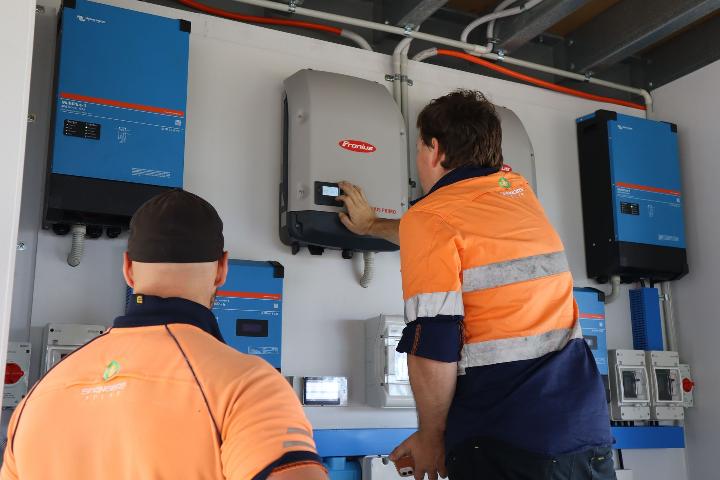
Solar power is the best and easiest way for homeowners to make the switch from grid-tied energy to off-grid energy. Off-grid living with solar means you can:
- Eliminate ongoing electricity bills
- Source and store your electricity
- Become energy-independent
- Avoid electricity price increases
- Reduce your carbon footprint
There are several considerations to make before deciding whether an off-grid solar system is right for you. In this blog post, we'll discuss the advantages of choosing solar for off-grid living, what life is like with an off-grid solar system, and the key considerations to make when choosing an off-grid solar solution.
Contents
1. Is off-grid solar a viable way to power your home?
2. Important considerations before choosing off-grid solar
3. What it's like living with an off-grid solar system
4. Choosing the right components for your off-grid solar system
5. The importance of getting it right the first time
Is off-grid solar a viable way to power your home?
Yes - off-grid solar power is a viable and sustainable way to power your home.
With advancements in solar technology, producing and using solar energy from your roof or ground-mounted system is exceptionally reliable and efficient, making it a practical solution for those looking to live off the grid.
By harnessing the power of the sun, you can generate your own electricity and become self-sufficient, reducing your reliance on the grid and avoiding electricity bills.
Read more: Pros and Cons of Solar Energy in 2023
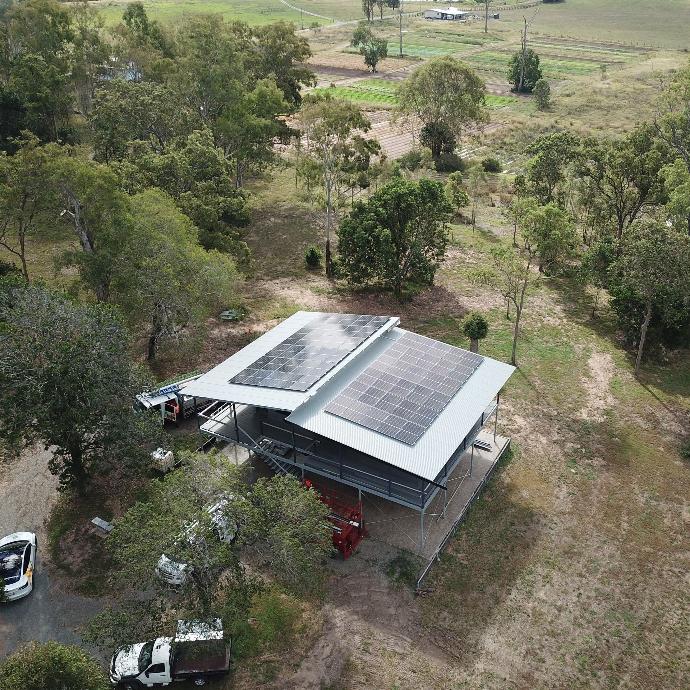
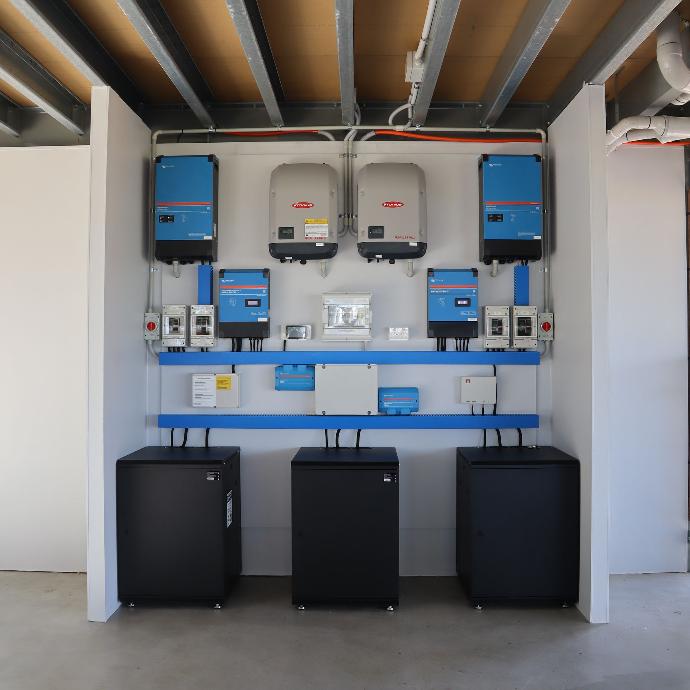
Off-grid solar and battery installation at Stockleigh, QLD by Springers Solar.
One of the main benefits of off-grid solar power is its ability to provide electricity even in remote areas where grid connection is not feasible. This means that no matter where your home is located, as long as it receives sunlight, you can generate your own energy.
Off-grid solar is also completely possible for semi-rural and suburban areas - it may be less of a necessity considering suburban areas have the option to access the grid, but we have found that in the past year or two, the interest in suburban off-grid and hybrid systems has increased as Queensland electricity prices continue to soar.
Read more: Fronius GEN24 Hybrid Solar Inverter Review
Read more: The Key Differences Between Grid Tied, Off-Grid, and Solar Hybrid Systems
A concern a lot of people have with off-grid solar systems is whether or not their home will lose power on a rainy day - if your system has been properly sized, this isn’t a problem. We will discuss days of autonomy further down in the blog, but the whole premise of an off-grid system is to power your home regardless of weather conditions.
"Many people are concerned whether their off-grid home will lose power on a rainy day - this isn't a problem if your system has been properly sized."

So, what do you need to consider with an off-grid solar energy system?
First, you should understand how an off-grid solar system works. There are two types of off-grid systems: DC-Coupled and AC-Coupled. The difference is in how your batteries are connected to the rest of your system and how they feed power to your home.
Read more: AC vs. DC Batteries
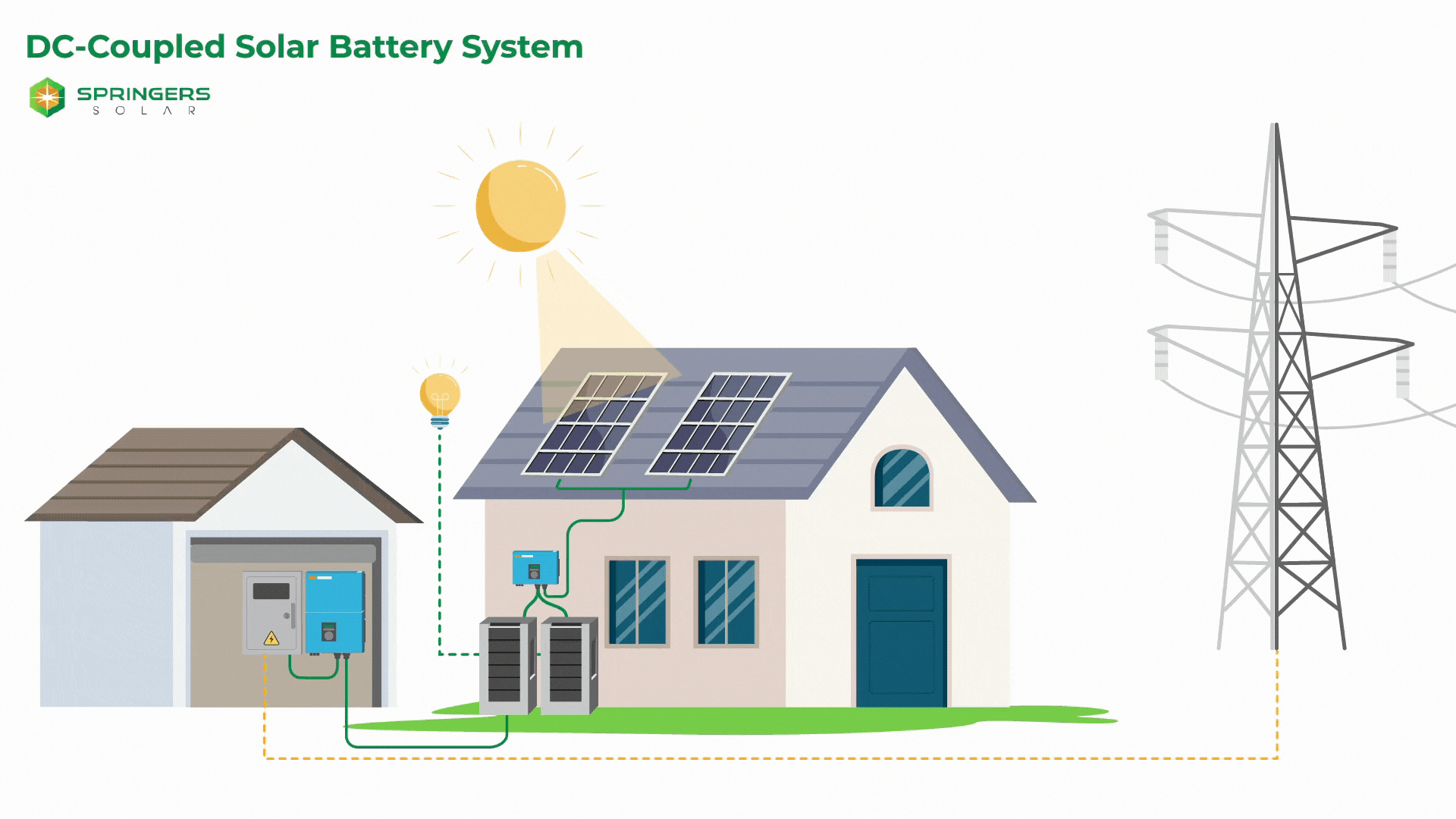
On a really simple level though, an off-grid system works by generating AC electricity with solar panels, which is then passed through a solar inverter to convert to DC electricity. This energy is then stored in your battery system, ready for use whenever you switch on lights in your home or use appliances.
Where a regular grid-connected home would rely on grid electricity to power lights and appliances, your off-grid home would instead access this power from the solar energy you have stored in your batteries.
Read more: How This Rural Property Has a $0 Power Bill: Off-Grid Solar And Battery Home
It’s a relatively simple process to understand, but it requires a lot of planning to get it right. So let’s look at some considerations you need to make.
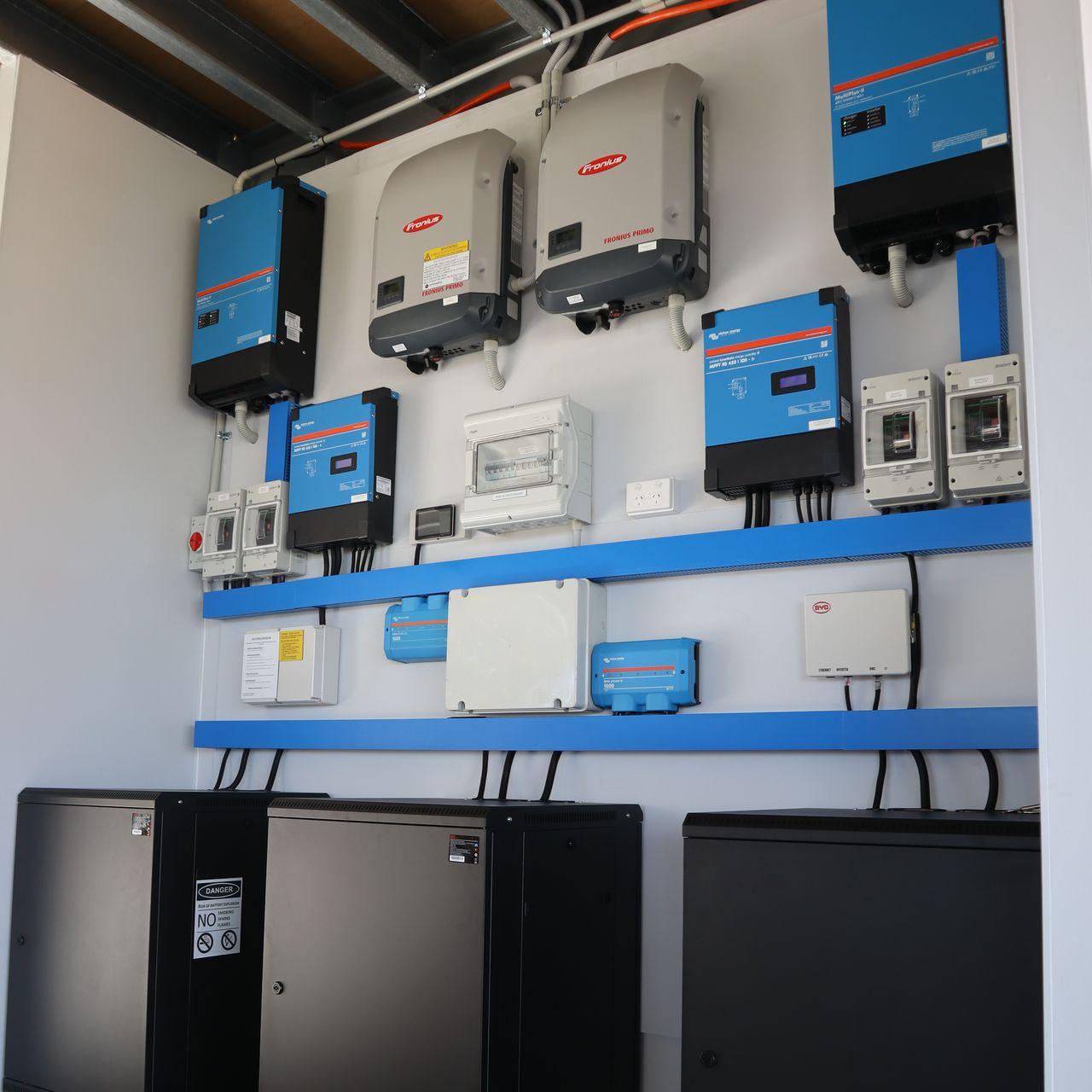
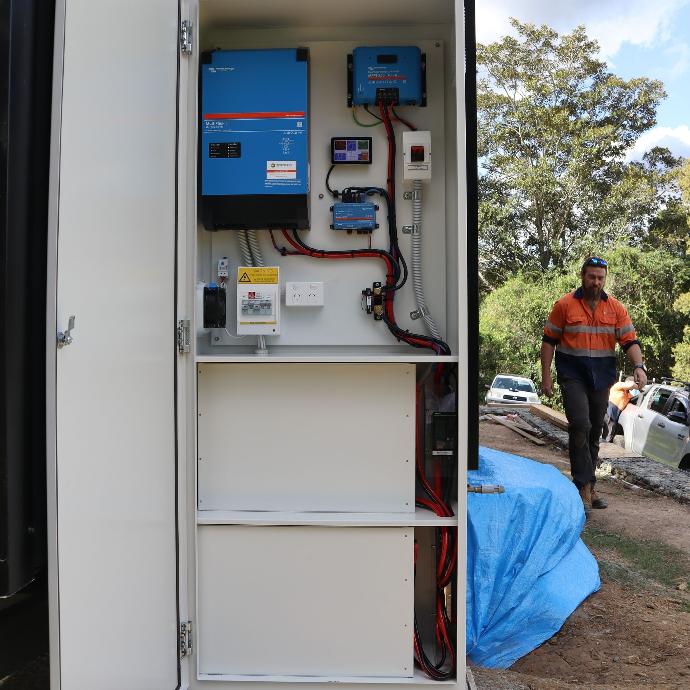
AC-Coupled Off-Grid System by Springers Solar
DC-Coupled Off-Grid System by Springers Solar
Important considerations before choosing off-grid solar
Before switching to an off-grid solar system, there are a few important considerations to keep in mind.
1. Understanding your energy needs and consumption patterns
Firstly, it's crucial to assess your energy needs and consumption patterns. Understanding how much electricity you currently use and when you use it will help you determine the size of the off-grid solar system you require. To assess how much energy you’ll be consuming, ask yourself questions like:
- How are you going to heat your hot water systems?
- How are you planning to cook your food? Electric cooktops and ovens?
- Will you need temperature control, like air conditioning or heating?
- How many appliances do you have? How many will be used and how much power will be drawn during the day versus at night?
- How many people will be using your power?
By accurately assessing your energy needs, you can ensure that your off-grid solar system will meet your requirements and provide you with reliable power.
Read more: What's The Difference Between kW And kWh?
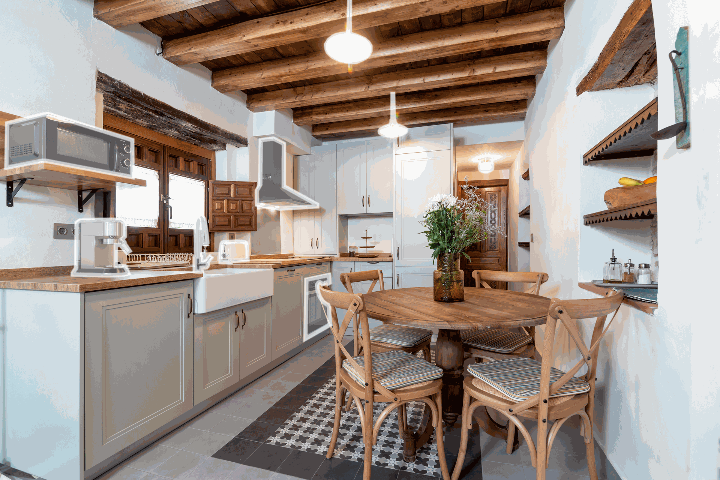
2. The size of your off-grid system
Once you have a good understanding of your energy needs, you can begin to determine the size of the off-grid solar and battery system to meet those requirements.
Off-grid solar systems need to be designed according to your energy usage and production requirements. An off-grid specialist (like us!) can help you determine the optimal solar system size based on factors such as the number of occupants in your home, your energy consumption patterns, and the number of days of autonomy you desire.
These factors will influence how many kilowatt-hours you’ll require from your solar panels and how much storage capacity you’ll need from your batteries.
Your System's Size
=
number of occupants + energy consumption + desired days of autonomy
3. Availability of sunlight and solar panel location
Another consideration is the availability of sunlight in your location. Off-grid solar systems rely on sunlight to generate electricity, so it's essential to evaluate the amount of sunlight your property receives throughout the year.
Consider factors such as shading from nearby buildings or trees, as well as the climate in your area. If your property receives limited sunlight, it may be necessary to install additional solar panels or invest in microinverter or optimiser technology to help mitigate shading.
An off-grid solar specialist (that’s us!) will inspect your property and determine the best location, orientation, and tilt for your solar panels so you can achieve the maximum amount of generation for your site.
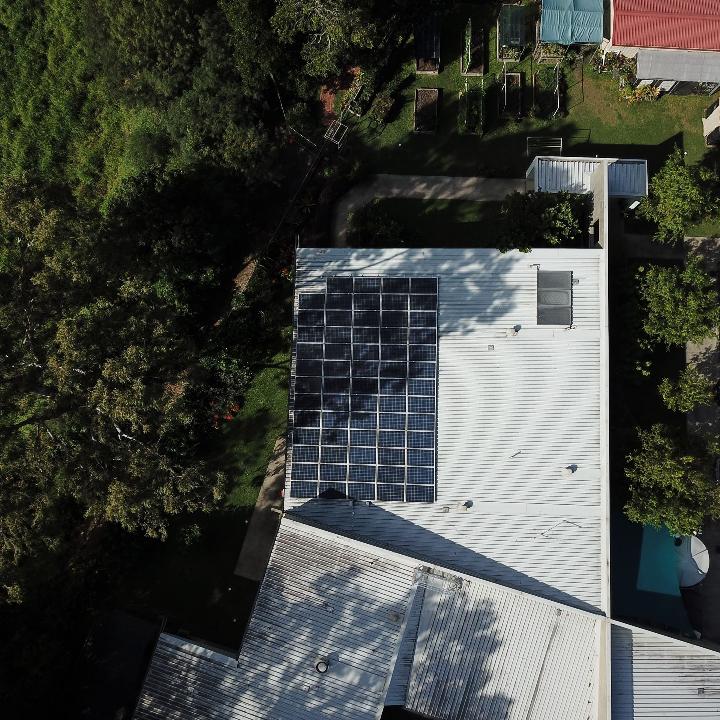
4. Future-proofing your property
Consider your long-term goals and plans for your property. If you're planning on expanding or making significant changes to your home in the future, it's important to account for the additional energy requirements these changes may bring.
You may need to invest in a larger solar system or additional battery storage to accommodate your future needs.
For example, we recently installed an off-grid solar system at this home on K’Gari (formerly Fraser Island).
The owners let us know that they were planning on eventually purchasing an electric vehicle, and while this may not be for another couple of years, they wanted their off-grid system to be able to power this additional load when they decide to proceed.
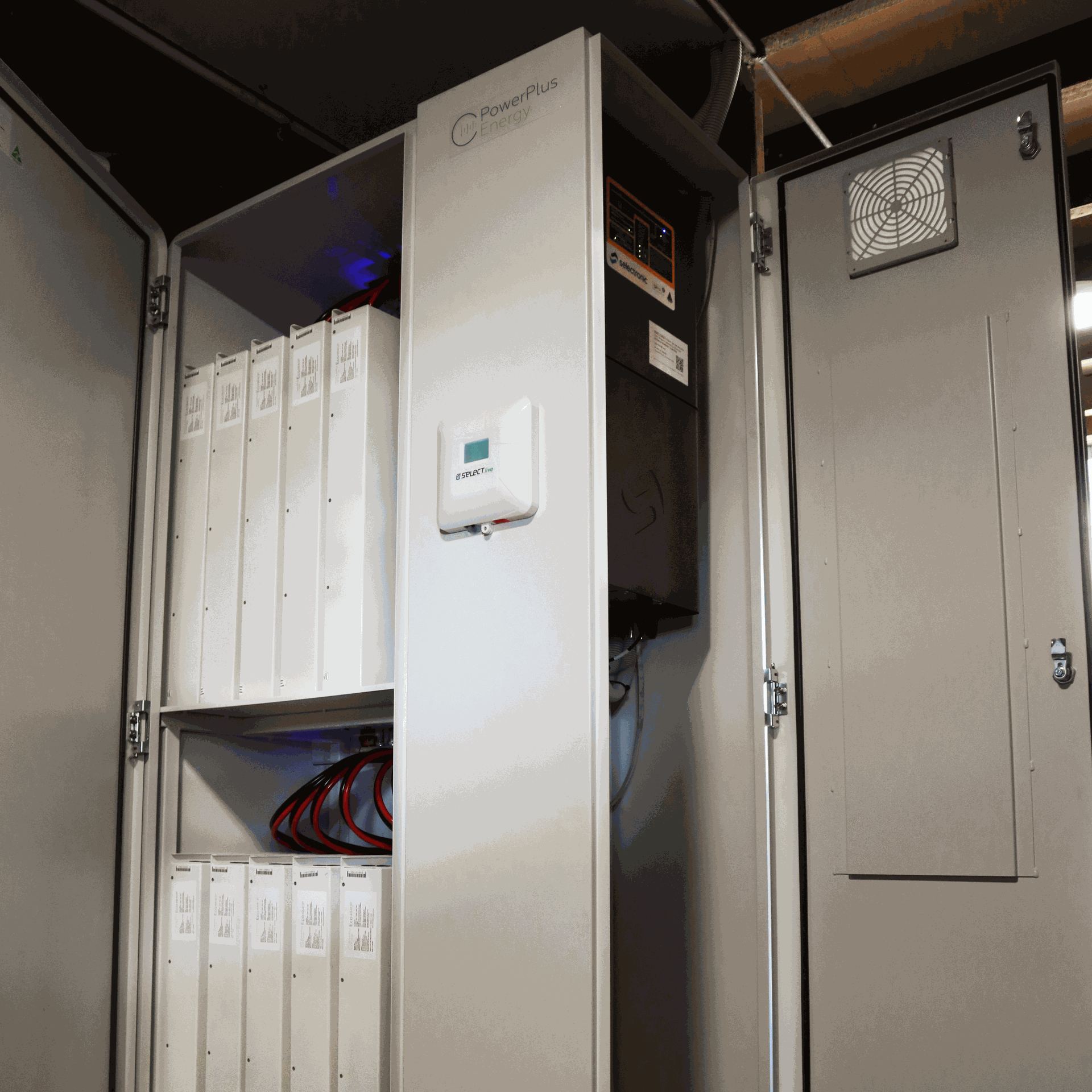
Read more: Off-Grid K'Gari Home - So Much Power, It Could Be Mistaken For City-Living
When designing their system, we took this into account and oversized their system so that when the time comes, no upgrades will be required. Because upgrades to an existing off-grid system can be expensive, this forethought has potentially saved the homeowner thousands of dollars in retrofitting.
5. Days of autonomy
You should consider that if you were subject to continuous poor weather conditions or lack of sunlight, how many days would you like your system to continue to operate before requiring the backup generator.
This is referred to as ‘days of autonomy’. The more days of autonomy you would like, the larger the battery storage capacity you will require. Talk to a specialist about this, as this is a factor that influences the sizing of your system.
Including a backup generator in your system provides necessary support during extreme inclement weather and ensures you have access to a continuous supply of electricity.
Days of autonomy influence generator runtime (you want as low generator runtime as possible) - or, you could increase the runtime of your generator to reduce the battery bank size, thereby reducing costs.
By carefully considering these factors, you can make an informed decision about whether off-grid solar power is the right choice for your home. Remember, each situation is unique, so it's important to consult with a reputable solar provider to assess your specific needs and determine the best off-grid solar solution for you.
"The more days of autonomy you would like, the larger the battery storage capacity you will require."
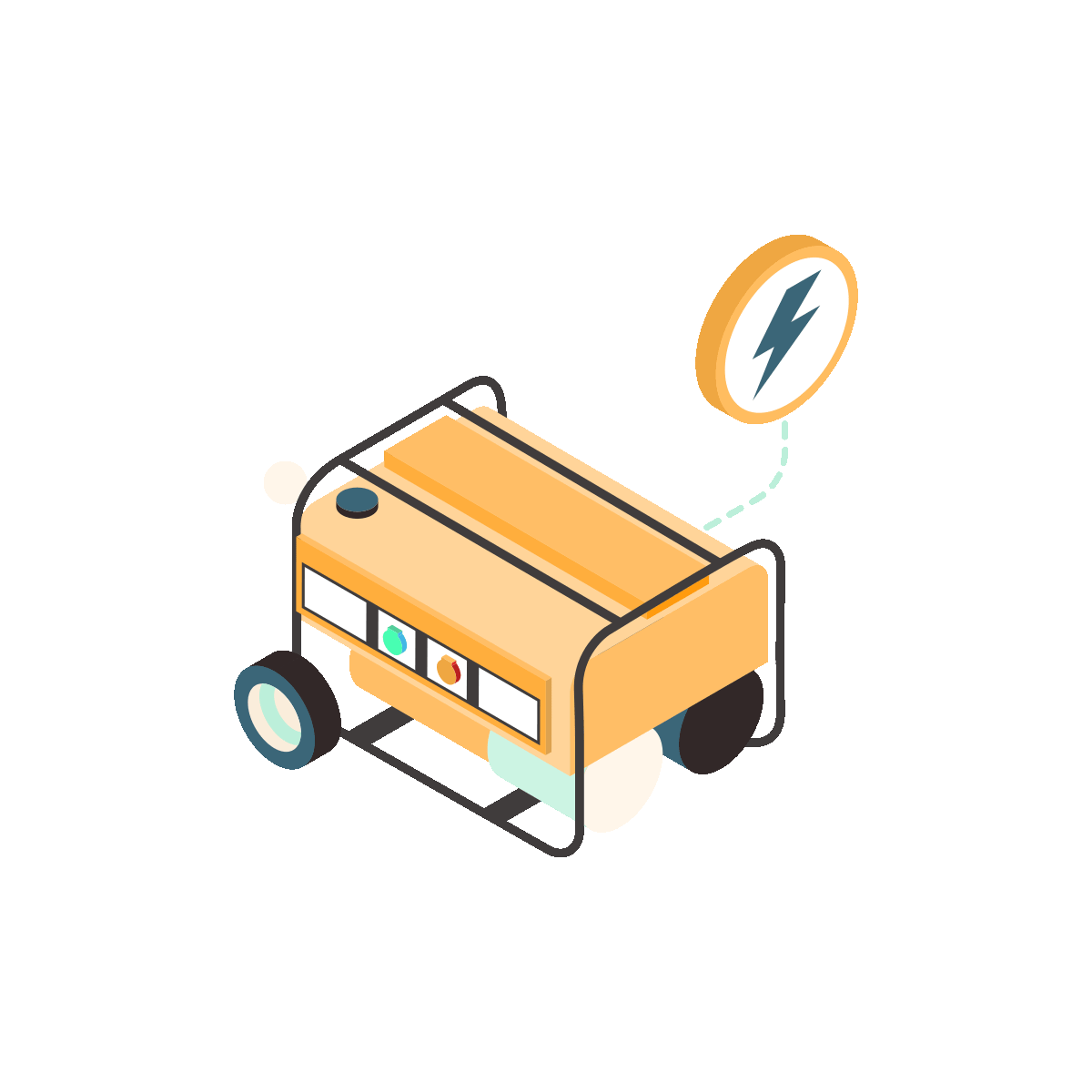
What it's like living with an off-grid solar system
Living with an off-grid solar system offers a unique and rewarding lifestyle. Not only are you self-sufficient, but you also gain freedom and independence from traditional power sources.
One of the key benefits of off-grid living is the ability to generate your own energy. With solar panels installed on your property, you can harness the power of the sun and convert it into usable electricity. This means that you no longer have to rely on the grid for your energy needs, giving you peace of mind in the event of power outages or rising energy costs.
Read more: Queensland Electricity Prices To Increase By Up To 22% On July 1
Living off-grid also allows you to have more control over your energy production. You can monitor how much energy your solar panels are generating, and adjust your consumption accordingly. This encourages a more conscious and efficient use of energy, helping you to reduce waste and save money in the long run.
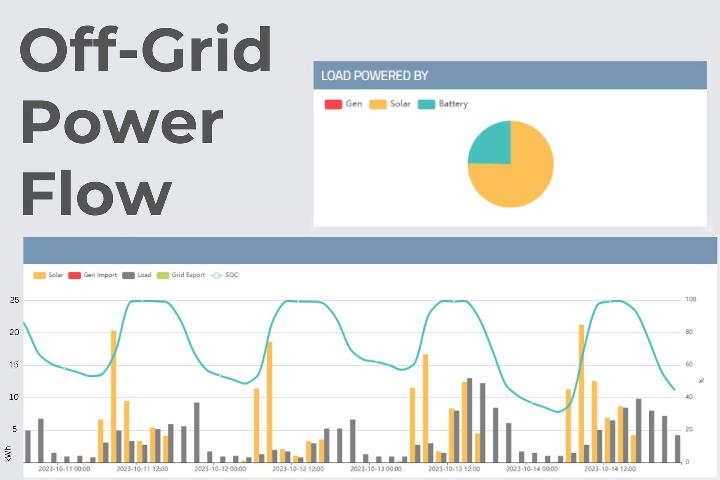
Another advantage of off-grid living is the opportunity to be more environmentally friendly. By relying on renewable energy sources like solar power, you are reducing your reliance on fossil fuels and contributing to a cleaner and greener planet. This is not only beneficial for the environment, but also for future generations who will inherit a more sustainable world.
However, it's important to note that off-grid living does come with some challenges. It requires careful planning and consideration of your energy needs and consumption patterns.
You need to ensure that your solar system is properly sized to meet your energy requirements and that you have sufficient battery storage to store excess energy for use during periods of low sunlight.
Living off-grid also means being more conscious of your energy usage. You may need to adjust your lifestyle and be more mindful of how you use electricity. This can involve making small changes such as using energy-efficient appliances, turning off lights when not in use, shifting loads to daytime use where possible, and reducing overall energy consumption.
Read more: How to improve your solar self-consumption with load shifting
Choosing the right components for your off-grid solar system
Choosing the right equipment and components for your off-grid solar system is crucial to ensure optimal performance and long-term success. With the abundance of options available in the market, it's important to make informed decisions that align with your specific needs and goals.
First and foremost, consider the solar panels themselves. Look for high-quality panels from reputable manufacturers that offer high-performance ratings, low degradation rates, and extensive warranty periods.
We recommend solar panels with no less than a 25-year warranty. Considering that solar panels are on the frontlines of your off-grid energy system, you want to ensure that they are working in perfect condition for extensive lengths of time. A 25+ year warranty period is a good indication that your investment will be protected for the long term.
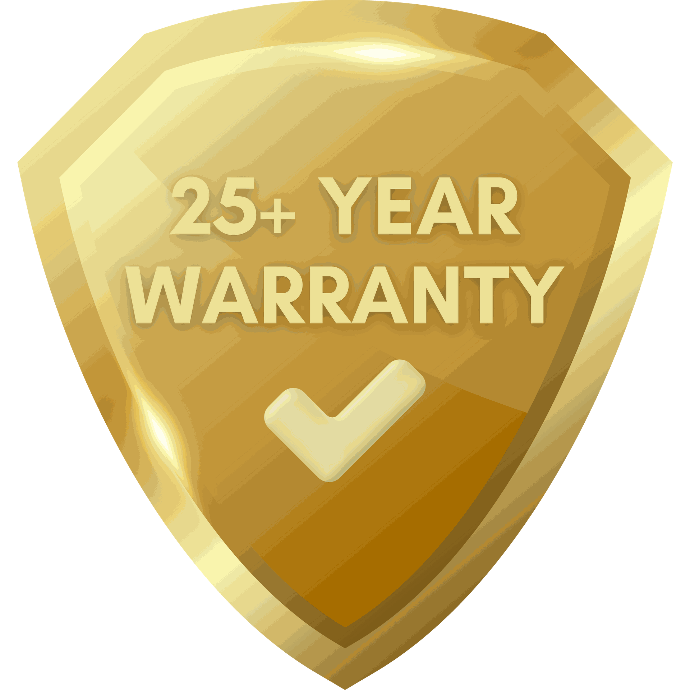
N-type panels are known for their high efficiency and are what we recommend to our off-grid customers, whilst P-type panels are a more budget-friendly option.
Read more: N-Type Solar Panels vs. P-Type Solar Panels
Read more: Best solar panels on offer in 2023
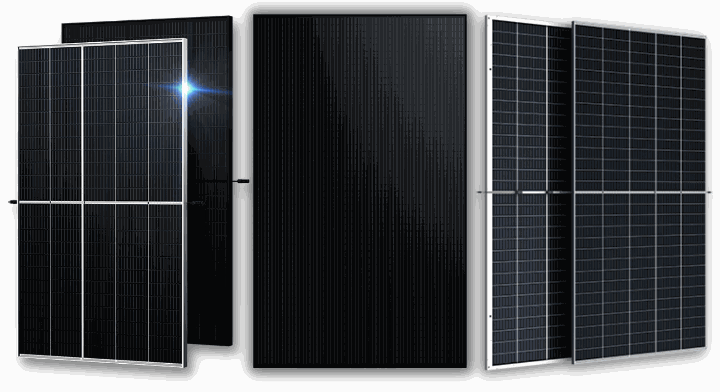
Next, you'll need to select the right inverter for your off-grid solar system. The inverter is responsible for converting the DC electricity produced by the solar panels into AC electricity that can be used in your home. Look for a high-quality, efficient inverter that is compatible with your solar panel system. Consider factors such as the inverter's capacity, reliability, and warranty.
Battery storage is another important consideration for off-grid solar systems. Batteries store excess energy generated by your solar panels for use during periods of low sunlight or at night. Lithium-ion batteries are the most common choice for off-grid systems due to their long lifespan, high efficiency, and depth of discharge.
Read more: Best solar batteries on offer in 2023

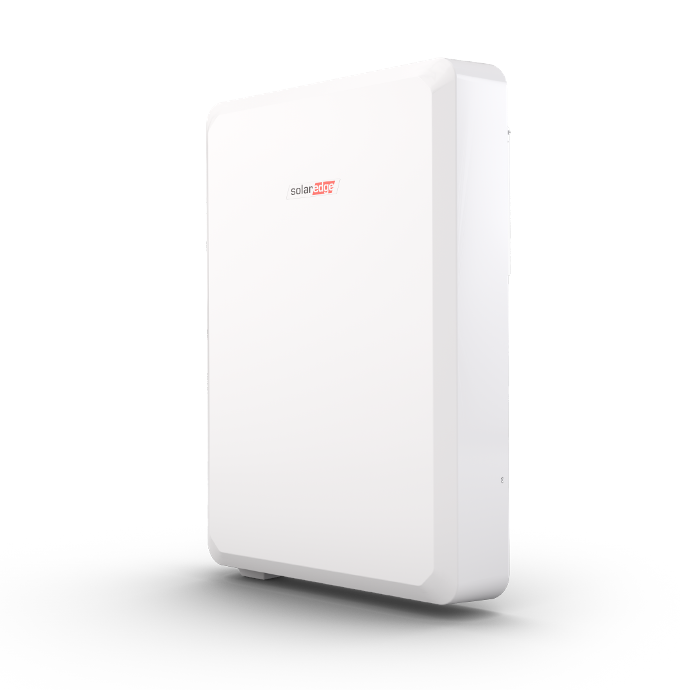
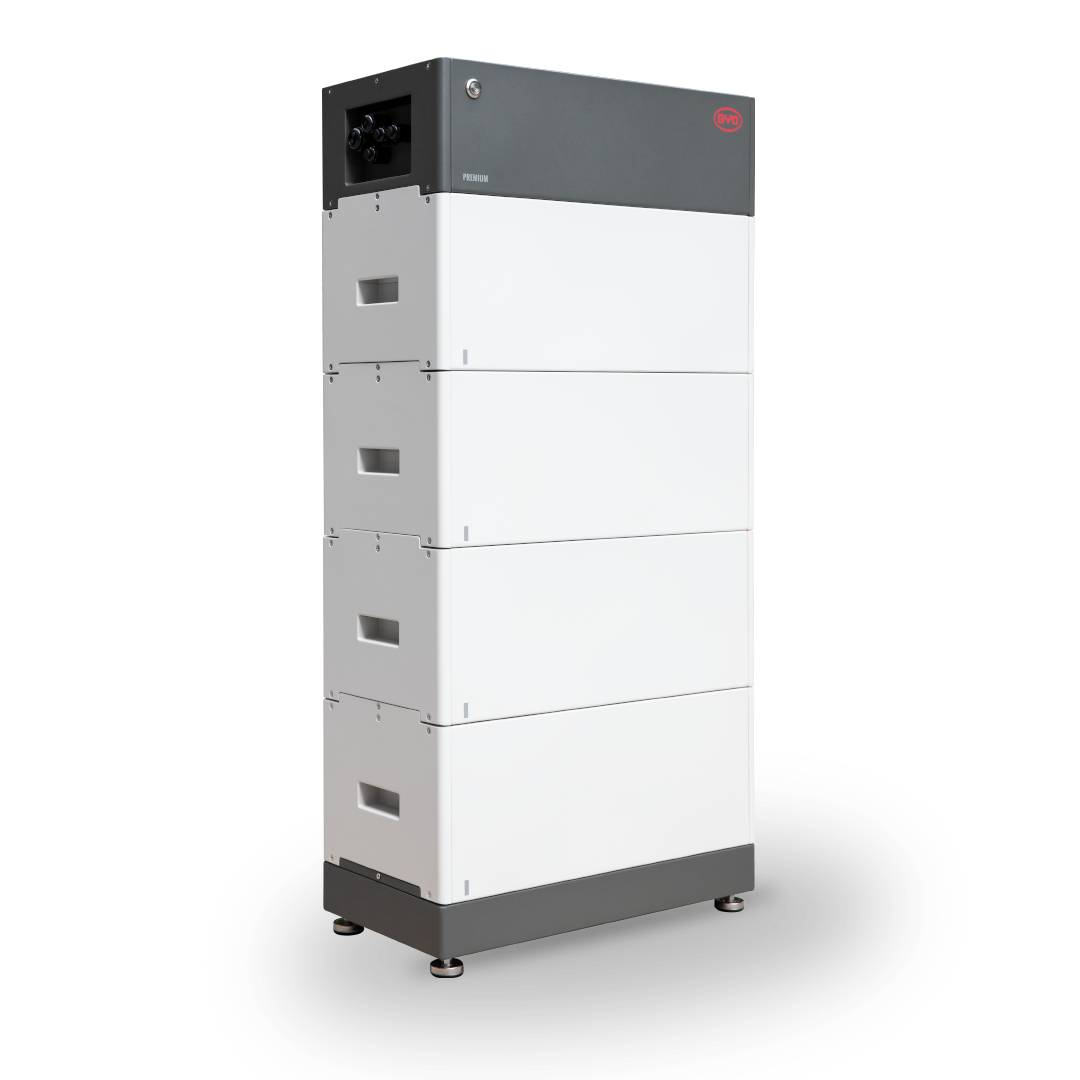
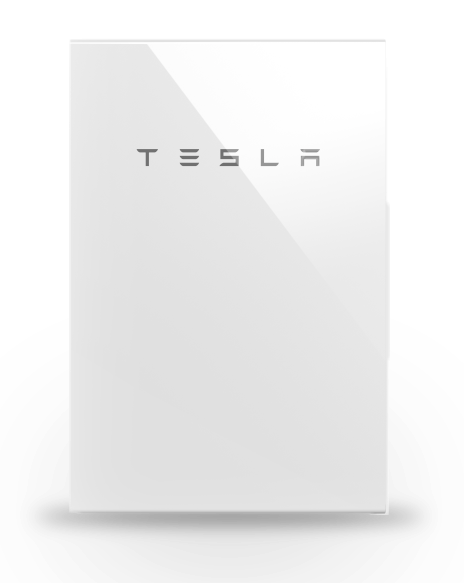
By carefully choosing the right equipment and components for your off-grid solar system, you can maximise the efficiency, reliability, and longevity of your system. Consult with a reputable off-grid specialist to assess your specific needs and determine the best components for your off-grid solar solution.
Remember, quality is key when it comes to achieving optimal performance and long-term success with your off-grid solar system.
The importance of getting it right the first time - quality is key!
When it comes to off-grid solar systems, getting it right the first time is crucial, and quality is key. Choosing the right equipment and components for your off-grid solar system can make all the difference in its performance and longevity. Investing in high-quality components may require a higher upfront cost, but it will pay off in the long run.
Quality components ensure optimal performance and efficiency, maximising the amount of energy your solar panels can generate. They also increase the durability and lifespan of your system, reducing the need for frequent repairs or replacements. By choosing reputable manufacturers and installers, you can have peace of mind knowing that your system will function optimally for years to come.
Read more: Somerset Dam Home With a $0 Power Bill - Detached From The Grid But Not Detached From Power
In addition, quality components provide a higher level of safety and reliability. Off-grid solar systems involve storing and distributing electricity, so it's essential to choose components that meet safety standards and have a proven track record. Faulty or low-quality components can pose safety risks and compromise the overall performance of your system.
"Investing in high-quality components may require a higher upfront cost, but it will pay off in the long run."
Furthermore, quality components often come with longer warranties, offering additional protection for your investment. Reputable manufacturers stand behind their products and are confident in their quality and durability. This means that in the rare event of a malfunction or defect, you can rely on the warranty to cover any necessary repairs or replacements.
When it comes to off-grid solar systems, cutting corners on quality can cost you more in the long run. By investing in high-quality components and working with reputable manufacturers and installers, you can ensure that your off-grid solar system operates at its full potential and provides you with reliable and sustainable energy for years to come. Don't compromise on quality when it comes to your off-grid solar system - it's an investment worth making.
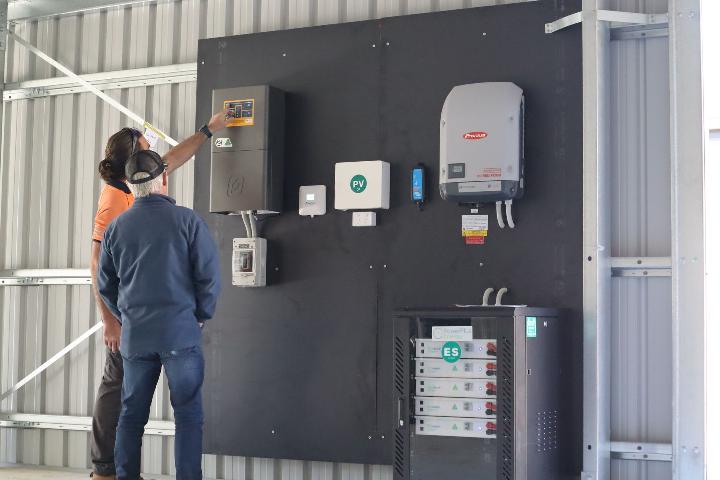
Springers Solar | Queensland's Most Experienced Off-Grid Solar Installer
Springers Solar provides quality components with proven performance, backed by industry-leading warranties, and dedicated after-sales support. Thousands of satisfied customers over more than 20 years of operation make Springers Solar one of the most established and experienced off-grid, residential, and commercial solar providers in Australia.
Springers Solar has received multiple awards for design and installation and is a certified/preferred installer for a large range of solar panel, inverter, and solar battery manufacturers, including Tesla, REC, and SolarEdge.
Our dedicated in-house team of electrical engineers, project managers, solar PV designers, solar installers and electricians work closely with you before, during, and long after your project is completed. Springers Solar offers an industry-leading 10-year workmanship warranty which is a testament to our qualified staff and offers you outstanding value and peace of mind.
Contact us about anything related to our services using the form below.
We'll get back to you as soon as possible.
Living Off Grid With Solar: A Guide